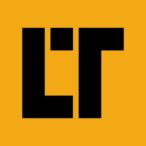
New analyses reveal widespread discrepancies in NAD+ and NR products, reflecting a wider issue in the expanding longevity market.
As the longevity sector moves from niche interest to global industry, consumer enthusiasm for supplements that claim to support cellular health continues to grow. Whether boosting NAD+ levels, stabilizing telomeres or mimicking caloric restriction, the promise of nutritional interventions remains an attractive – and increasingly crowded – prospect.
However, a pair of recent whitepapers from NiagenBio (formerly ChromaDex) suggest that while interest in longevity-supporting compounds may be accelerating, quality control has not kept pace. The analyses – one of 21 NAD+ supplements, the other of 39 NR products including several counterfeit examples – reveal wide gaps between marketing claims and chemical reality [1,2].
Longevity.Technology: The growth of the supplement market is a double-edged sword. Greater access to compounds with promising longevity potential is a welcome development – but expansion without oversight invites inconsistency, confusion, and in some cases, outright deception. From mislabeled ingredients to products containing negligible active compounds, recent analyses reveal just how far reality can drift from the claims on the packaging. In a space increasingly driven by scientific aspiration, it is disheartening to see how often consumers are left navigating a minefield of marketing hype and underwhelming formulations.
This is not a call to retreat from supplementation – it’s a call to raise the bar. As longevity becomes a mainstream aspiration, supplement brands have a responsibility to meet the moment with transparency and rigor. Without robust regulation or third-party accountability, too many products are leaning on hope rather than evidence. The message to consumers is simple: do your homework, ask for data and look beyond the shiny label. The right compounds, in the right doses, can support healthy aging – but only if they actually deliver what they promise.
A worrying pattern
According to the NiagenBio analysis of NAD+ products available on Amazon, more than half of the top-selling items (57%) contained less than 1% of the active ingredient claimed on their packaging [2]. In fact, 11 of the 21 products had no detectable NAD+ at all [2]. Similar results were found in the NR study, where only 13% of products met or exceeded their label claims and nearly three-quarters fell significantly short [1].
The issue was especially acute among supplements sold in softgel or high-water-content formats, including liposomal products, which are often promoted as offering superior bioavailability. The data suggest otherwise. In the NAD+ report, all nine softgel products tested had no detectable NAD+ [2]; for liposomal NR products, five out of eleven contained less than 1% of the labelled amount, and the remaining six were all well below label claims [1]. Some formulations appear to rely on the inclusion of sunflower lecithin as a proxy for liposomal encapsulation – a formulation shortcut unlikely to deliver on the bioavailability benefits being marketed [2].

“This is not just a quality control issue – it’s a consumer safety issue,” Dr Andrew Shao, SVP of Regulatory and Scientific Affairs at Niagen Bioscience, told Longevity.Technology. “And unfortunately, current regulatory oversight is not sufficient to prevent it.”
Shao added that consumers and retailers can take several steps to protect themselves, including choosing trusted brands, buying directly from authorized sellers, checking for third-party certifications, and avoiding water-based or liposomal products, which may be unstable or misleading.
Trust issues
This is not a problem unique to NAD+ and NR. The supplement sector, particularly in areas adjacent to biohacking, nootropics and antiaging, is increasingly crowded with products that straddle a complex boundary between food, wellness and therapeutics. Regulation varies by region, enforcement is patchy and the consumer is left to interpret scientific-sounding claims without consistent guidance or guarantees.
The lack of mandatory third-party testing means that brands are free to set their own standards – or, as the case may be, lower them. For consumers, particularly those investing in long-term health, this makes due diligence essential. Certificates of analysis, batch testing, stability data and clear sourcing are no longer optional luxuries; they are vital tools in a market where price, appearance and even glowing reviews may be no indicator of quality.
“The reality is that dietary supplements are not subject to premarket approval, and enforcement resources are limited,” Shao explained. “Under the Dietary Supplement Health and Education Act (DSHEA), brands are responsible for ensuring product safety and truth in labeling – but not all do. That’s why we keep seeing products that don’t meet label claims, include undeclared substances, or simply don’t contain the active ingredient. I absolutely believe that third-party testing should become standard – especially in categories like NAD+ precursors where quality varies dramatically.”
Shao added that raising the bar starts with clearer standards and stronger accountability.
“Self-policing starts with transparency,” he explained. “Certificates of Analysis must be accessible to consumers. Companies can partner with independent labs for potency and purity testing, and findings should be published – not just to expose problems, but to encourage improvement across the industry.”
This is not unique to NAD+ and NR. A recent analysis of 20 resveratrol supplements sold in Europe found significant disparities between label claims and actual content, with several products failing to meet regulatory labelling standards entirely [3]. In another instance, a controlled trial of high-purity spermidine – administered at a dose of 40 mg per day – revealed minimal changes in circulating polyamine levels, raising questions not only about formulation integrity, but also about the bioavailability of active ingredients in commercial preparations [4,5]. Both findings speak to a growing concern: when the science advances faster than quality assurance, even well-intentioned supplementation may prove ineffective or misleading.
“Ultimately, trust has to be earned,” said Shao. “That means investing in clinical research, rigorous testing, and transparency from raw materials to finished product.”
Beyond the label
What these findings also highlight is the importance of delivery format and dosage realism. Several products claiming over 500 mg of NAD+ per serving failed to deliver measurable quantities of the compound [2]. Given NAD+’s instability in water and inability to cross cell membranes directly, such claims not only stretch credibility but may also obscure a more useful conversation about bioavailable precursors and realistic physiological impact [2].
“Avoid water-based and liposomal products as NAD+ and NR molecules are unstable in these formats,” Shao advised. “Liposomal products marketed as having enhanced bioavailability are misleading. As demonstrated by our NR and NAD+ product test analyses, liposomal formulations often simply include sunflower oil or sunflower lecithin ingredients – components of liposomes – but not actual liposomal structures. The presence of a small amount of these ingredients does not necessarily improve bioavailability in the way true liposomal delivery does.”
In parallel, the presence of counterfeit products in mainstream marketplaces adds another layer of concern. Among seven fake Tru Niagen products tested, five had no NR at all, one was below the reporting limit, and one – though close to its label claim – showed signs of degradation [1]. One counterfeit was found to contain undeclared maltodextrin, a particular concern for those managing glucose levels [1].
It is encouraging that independent testing is being published and shared – transparency of this kind is not only a marker of sector maturity, but a practical tool for consumers navigating an increasingly complex market. In the pursuit of better healthspan, information is as important as innovation; empowered choices rely on more than glossy branding or trending ingredients. As longevity science moves steadily into the mainstream, the supplements that claim to support it must meet the same standards of evidence, rigor and accountability – not just to preserve trust, but to ensure genuine benefit.
[1] https://s205.q4cdn.com/770776702/files/doc_downloads/MarketSurveillance/Quantitative_Analysis_of_Nicotinamide_Riboside_Consumer_Products_and_Counterfeit_Tru_Niagen_February_2025.pdf
[2] https://s205.q4cdn.com/770776702/files/doc_downloads/MarketSurveillance/2025/05/Quantitative-Analysis-of-NAD-Consumer-Products-May-2025.pdf
[3] https://www.mdpi.com/2072-6643/15/2/474
[4] https://clinicaltrials.gov/study/NCT05459961
[5] https://p-bio.org/noticias/chrysea-announces-results-of-a-double-blind-randomized-controlled-human-trial-with-sprevive/
The post Lab tests raise concerns over longevity supplements label accuracy appeared first on Longevity.Technology – Latest News, Opinions, Analysis and Research.








